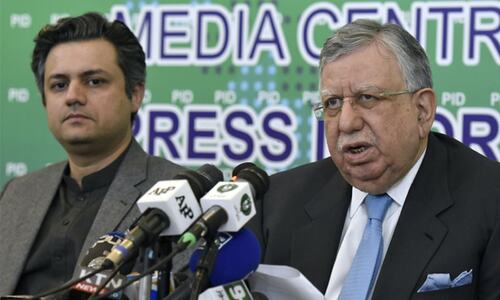THE good news is that Pakistan has finally struck a deal with the IMF for the resumption of the $6bn loan facility after more than six weeks of negotiations. However, the IMF dollars may take some time to arrive “subject to the implementation of prior actions”, mainly those related to additional tax revenues and the State Bank’s independence, as implied in the Fund’s announcement on the finalisation of the staff-level agreement on policies and reforms under the programme.
Still, it has had a salutary effect on the home currency, with the rupee strengthening against the dollar on Monday. Once the deal is approved by the IMF board, it will pave the way for the transfer of $1.06bn to Pakistan, bringing the total disbursement to $3.03bn or so, and helping unlock significant funding from bilateral and multilateral lenders. That must boost forex reserves, reduce pressure on the current account and the currency, and end market uncertainty.
But how much pain will ordinary folk have to undergo as the government’s policy pivot shifts from economic growth to stabilisation? Well, the bad news for low-middle-income people may continue relentlessly in the weeks and months ahead. But then, most households are already getting used to tough times. Three years of economic slowdown, elevated food and energy inflation, job losses, and consistent erosion in purchasing power should be enough to prepare for tougher future adjustments, no?
Read: Austerity plan for revival of IMF package outlined
With the rupee depreciating, the current account expanding, forex reserves depleting and markets getting anxious, a deal with the IMF was imperative. The question now is: will the finance team admit to the blunder they committed by putting the IMF programme on hold to pursue rapid growth in order to improve the government’s electoral prospects in 2023? More importantly, what is the guarantee they will do what it takes to implement governance and fiscal reforms for tackling the structural impediments to economic growth?
The ruling elite’s failure to structurally transform the economy has brought the country to a point where no one is ready to take us at our word — and give us leeway. That is precisely what had happened when the PTI government went to the Fund back in 2019 and that is exactly what has happened now. It is time for Islamabad to prove to the world that we are serious about putting our house in order. This may not be our last chance; but the next time it is going to be even tougher.
Published in Dawn, November 23rd, 2021














































